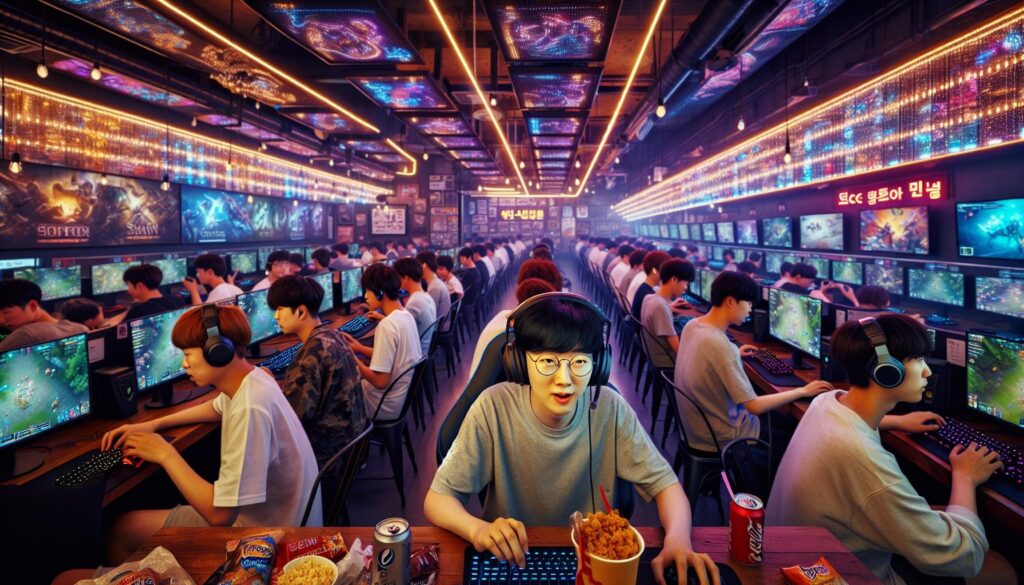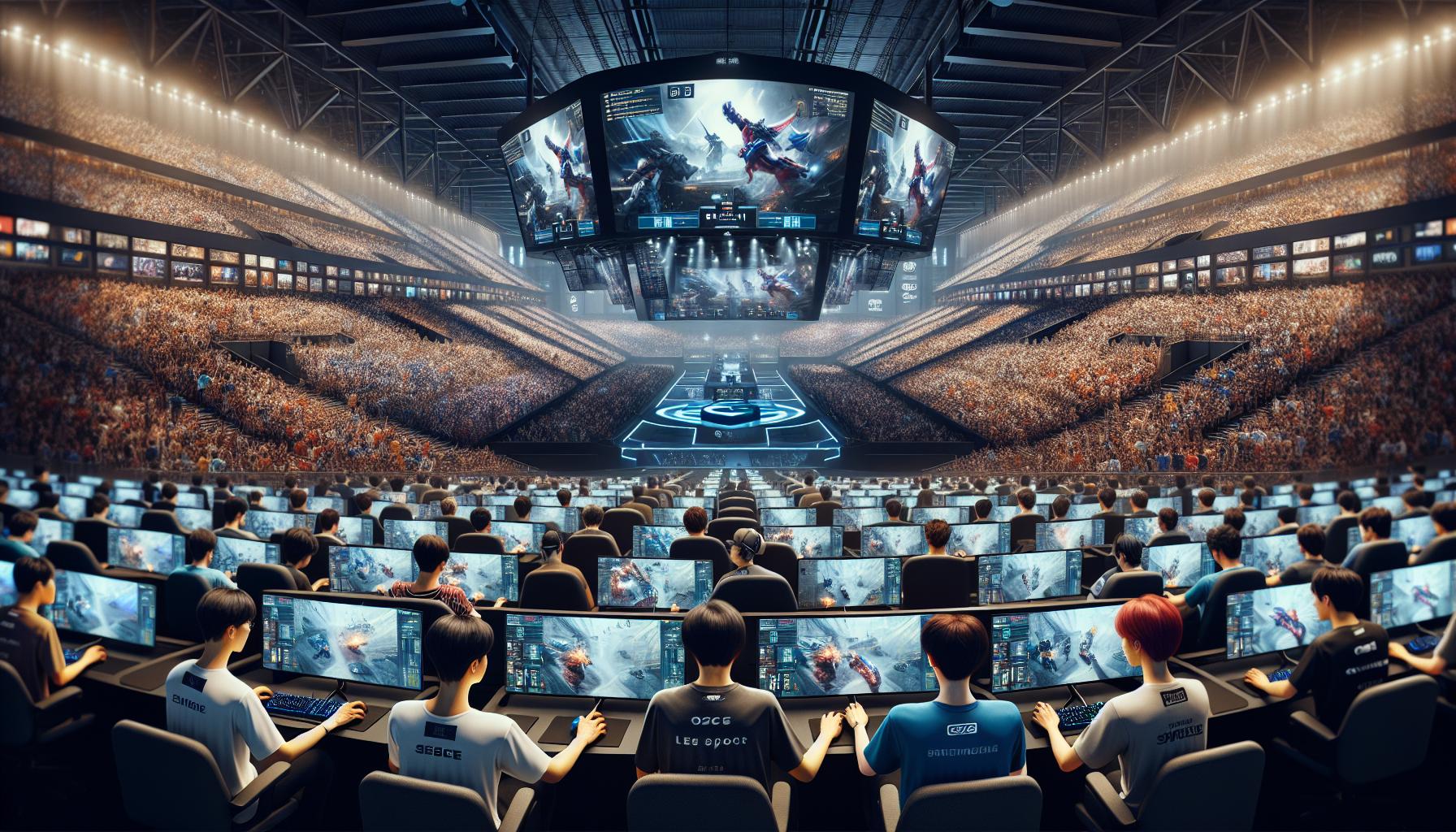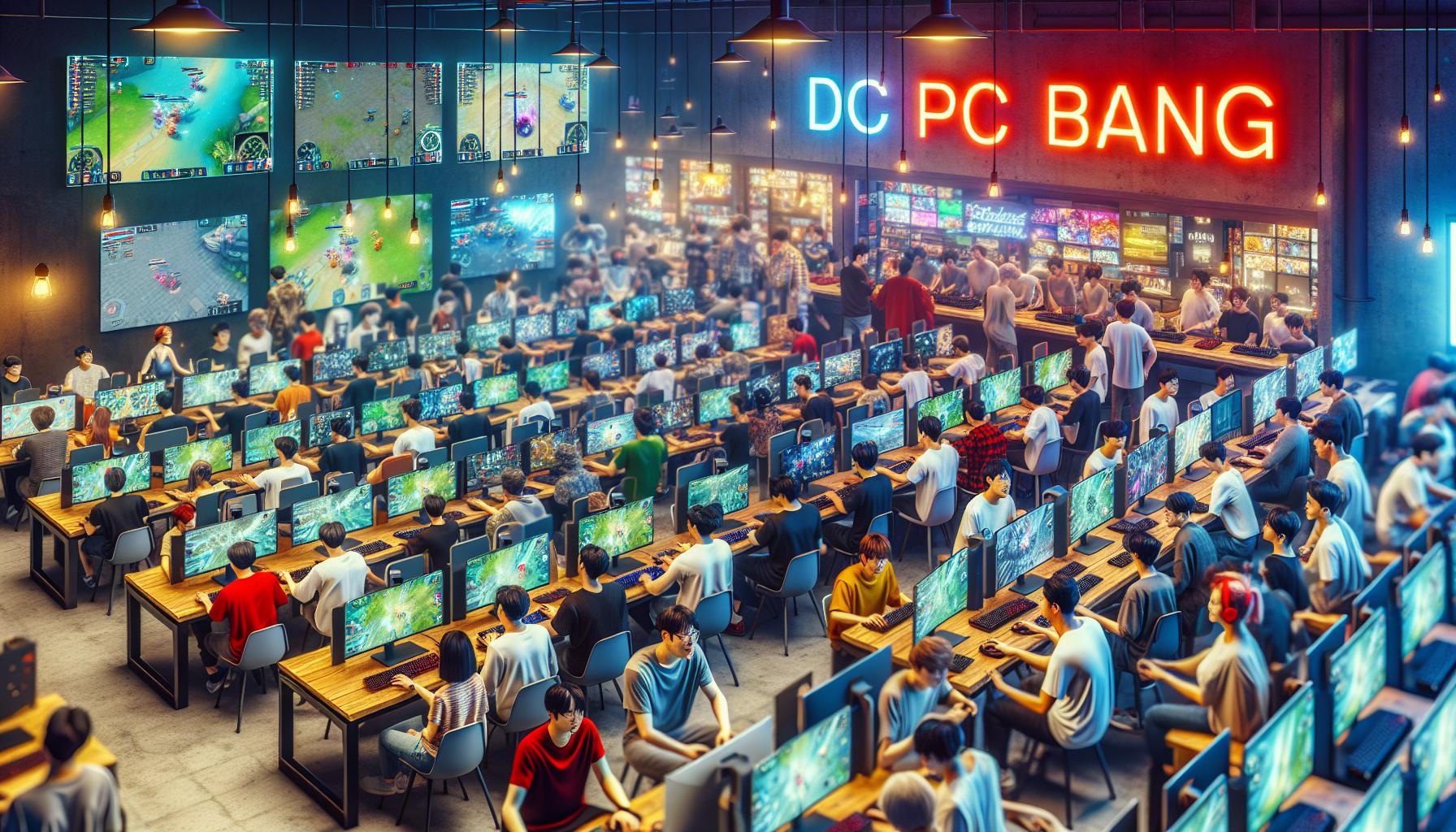South Korea stands at the forefront of global gaming culture where professional gamers achieve celebrity status and gaming cafes light up every street corner. It’s a nation where gaming isn’t just a hobby – it’s woven into the fabric of daily life with the same significance as K-pop and kimchi.
In this digital playground video games transcend mere entertainment. PC bangs (Korean gaming cafes) serve as social hubs where friends gather to battle virtual enemies share instant noodles and forge real-world connections. From elementary school students to working professionals South Koreans embrace gaming as both a competitive sport and a cherished cultural phenomenon.
South Korean Gaming Culture
South Korea’s gaming culture emerged in the late 1990s during the country’s economic recovery. The combination of technological infrastructure development rapid internet adoption transformed gaming into a cornerstone of Korean society.
The Role of Internet Cafes (PC Bang)
PC bangs revolutionized South Korea’s gaming landscape in 1998 with the opening of the first dedicated gaming cafe. These establishments offer high-speed internet access powerful gaming computers 24-hour service at affordable rates starting from ₩1,000 ($0.75) per hour. PC bangs provide:
- Premium gaming equipment: Latest graphics cards high-refresh monitors mechanical keyboards
- Social gathering spaces: Communal areas food delivery services private gaming rooms
- Exclusive content: Early access to games special in-game items PC bang-only features
- Professional training grounds: Practice venues for aspiring esports athletes competitive gaming teams
Impact of Early Broadband Access
South Korea pioneered nationwide broadband implementation in 1995 through government-backed infrastructure initiatives. The rapid development created:
| Year | Internet Statistics |
|---|---|
| 1998 | 1M broadband users |
| 2000 | 19M internet users |
| 2002 | 93% household coverage |
Early internet adoption enabled:
- Development of multiplayer gaming platforms
- Creation of professional gaming leagues tournaments
- Establishment of dedicated gaming television channels
- Growth of domestic game development companies
The widespread connectivity fostered competitive gaming communities sparked the creation of iconic titles like StarCraft Lineage generating a $15.6B gaming market.
Professional Gaming as a Career Path
South Korea’s professional gaming industry offers structured career paths with competitive salaries ranging from $20,000 to $200,000 annually. Professional gamers receive comprehensive benefits including healthcare coverage training facilities accommodation.
The Birth of Esports Champions
South Korean esports champions emerge through a sophisticated talent development system starting as young as age 13. Top-tier organizations like T1 SK Telecom Gen.G operate dedicated scouting networks to identify promising players through ranked ladder performances online tournaments. Notable champions like Lee “Faker” Sang-hyeok who earned $1.3 million in tournament winnings showcase the financial viability of professional gaming. The Korean Esports Association (KeSPA) maintains strict regulations governing player contracts training conditions competitive integrity. Professional leagues feature structured seasons playoffs championship tournaments with prize pools exceeding $500,000.
Training and Gaming Houses
Professional gaming teams operate specialized training facilities called gaming houses where players live practice together. These facilities feature dedicated practice rooms streaming studios specialized equipment professional coaching staff. Players maintain rigorous schedules with 12-14 hours of daily practice including team drills individual skill development strategy sessions physical fitness routines. Gaming houses provide nutritionists mental health professionals performance analysts to support player development. Teams coordinate practice matches (scrims) against other professional organizations track performance metrics analyze gameplay data optimize strategies. The structured environment enables focused skill development team coordination improvement of competitive performance.
Popular Games That Shaped Korean Gaming
South Korean gaming culture centers around iconic titles that transformed casual entertainment into a national passion. These games established competitive frameworks that influenced global esports standards.
StarCraft’s Cultural Phenomenon
StarCraft emerged as South Korea’s first major gaming phenomenon in 1998, attracting over 4.5 million active players by 2000. Professional StarCraft leagues drew massive television audiences, with peak viewership reaching 17 million during the 2005 SKY ProLeague finals. The game’s strategic depth fostered dedicated training programs, establishing the blueprint for modern esports infrastructure. Three major broadcasting networks – OnGameNet, MBCGame, and GameTV – aired StarCraft tournaments regularly, cementing the game’s status as a cultural cornerstone. Top players like Lim “BoxeR” Yo-hwan earned celebrity status, with endorsement deals exceeding $500,000 annually.
League of Legends Dominance
League of Legends superseded StarCraft as Korea’s premier esport in 2012, with 27 million daily active players nationwide. Korean teams dominated international competitions, winning six World Championships between 2013-2023. T1, featuring legendary mid-laner Faker, established unprecedented records including three World Championship titles. The Korean LoL Champions Korea (LCK) league generates $40 million in annual revenue through broadcasting rights, sponsorships, and merchandise sales. Professional teams maintain dedicated facilities in Seoul’s Gangnam district, where players train up to 14 hours daily using specialized practice regimens refined through years of competitive excellence.
Social Aspects of Korean Gaming
Gaming in South Korea transcends individual entertainment to become a deeply embedded social activity. The gaming culture fosters community connections through shared experiences in both physical spaces like PC bangs and virtual environments.
Gaming as Social Entertainment
PC bangs serve as community hubs where gamers forge friendships through multiplayer competitions. Players spend an average of 4-6 hours per session at these gaming cafes, participating in team-based games like League of Legends or Overwatch. These venues facilitate real-time communication between players, creating lasting social bonds beyond the digital realm. Gaming communities organize regular meetups, tournaments, and viewing parties for major esports events, attracting crowds of 300-500 participants. Online gaming platforms integrate social features like voice chat, friend lists, and guild systems that enable players to maintain connections across different games and platforms.
Family and Society’s Perception
South Korean families recognize gaming as a legitimate career path, particularly since the success of professional players like Faker who earn $2.5 million annually. Parents enroll children in gaming academies that combine traditional education with esports training. Major corporations sponsor gaming events, investing $150 million annually in tournament prizes and player development. Educational institutions incorporate gaming-related courses into their curricula, with 12 universities offering esports management degrees. The government supports the gaming industry through dedicated funding programs, allocating $200 million to gaming startups and infrastructure development between 2020-2022.
Government Support and Regulation
South Korea’s government implements comprehensive policies to support the gaming industry while maintaining strict regulatory measures. The Ministry of Culture, Sports and Tourism oversees gaming-related initiatives through specialized departments dedicated to industry growth and public welfare.
Gaming Industry Policies
The Korean Creative Content Agency (KOCCA) provides $200 million in annual funding to support game development studios through grants programs. South Korean tax incentives offer gaming companies up to 25% reduction in corporate taxes for research and development investments. The government established the Game Industry Promotion Act in 2006, creating legal frameworks for intellectual property protection and fair competition. Export support programs connect Korean gaming companies with international markets, resulting in $7.9 billion in gaming exports in 2022. The Korea Game Rating and Administration Committee (GRAC) maintains quality standards through mandatory content rating systems.
Gaming Addiction Prevention
The Shutdown Law restricts access to online games for players under 16 between midnight and 6 AM. Gaming centers implement mandatory ID verification systems to track playing time and enforce age restrictions. The government funds 12 specialized gaming addiction treatment centers across major cities. Educational programs in 3,000 schools teach responsible gaming habits to students aged 10-18. The National Center for Gaming Disorder operates a 24/7 helpline that assists 50,000 individuals annually. Healthcare providers offer cognitive behavioral therapy programs specifically designed for gaming addiction recovery.
Gaming’s Influence on Korean Economy
South Korea’s gaming industry contributes significantly to the national economy, generating $19.7 billion in revenue in 2022. The sector employs over 89,000 people directly in game development, publishing, esports operations, with thousands more in supporting industries.
Gaming Tourism
South Korea attracts 250,000 gaming tourists annually who visit iconic esports venues, gaming cafes, and gaming-themed attractions. Major venues like the LOL PARK in Seoul draw international visitors to watch professional matches, generating $42 million in tourism revenue. Gaming districts such as Hongdae and Gangnam feature specialized gaming cafes, merchandise stores, and gaming-themed restaurants that cater to both domestic and international enthusiasts. Notable gaming events like the League of Legends World Championship bring 45,000 international spectators, filling hotels and boosting local businesses.
Gaming Technology Exports
Korean gaming companies export technology solutions worth $8.2 billion annually to global markets. Major developers like NCSoft, Nexon, and Pearl Abyss license game engines, networking solutions, and development tools to international studios. Gaming peripherals from Korean manufacturers constitute 35% of the global gaming hardware market. Korean cloud gaming infrastructure powers platforms in 24 countries, while mobile game development frameworks from Korean companies support 42% of top-grossing mobile games worldwide. Content licensing agreements with Chinese, Japanese, and Southeast Asian markets generate $3.4 billion in annual revenue.




